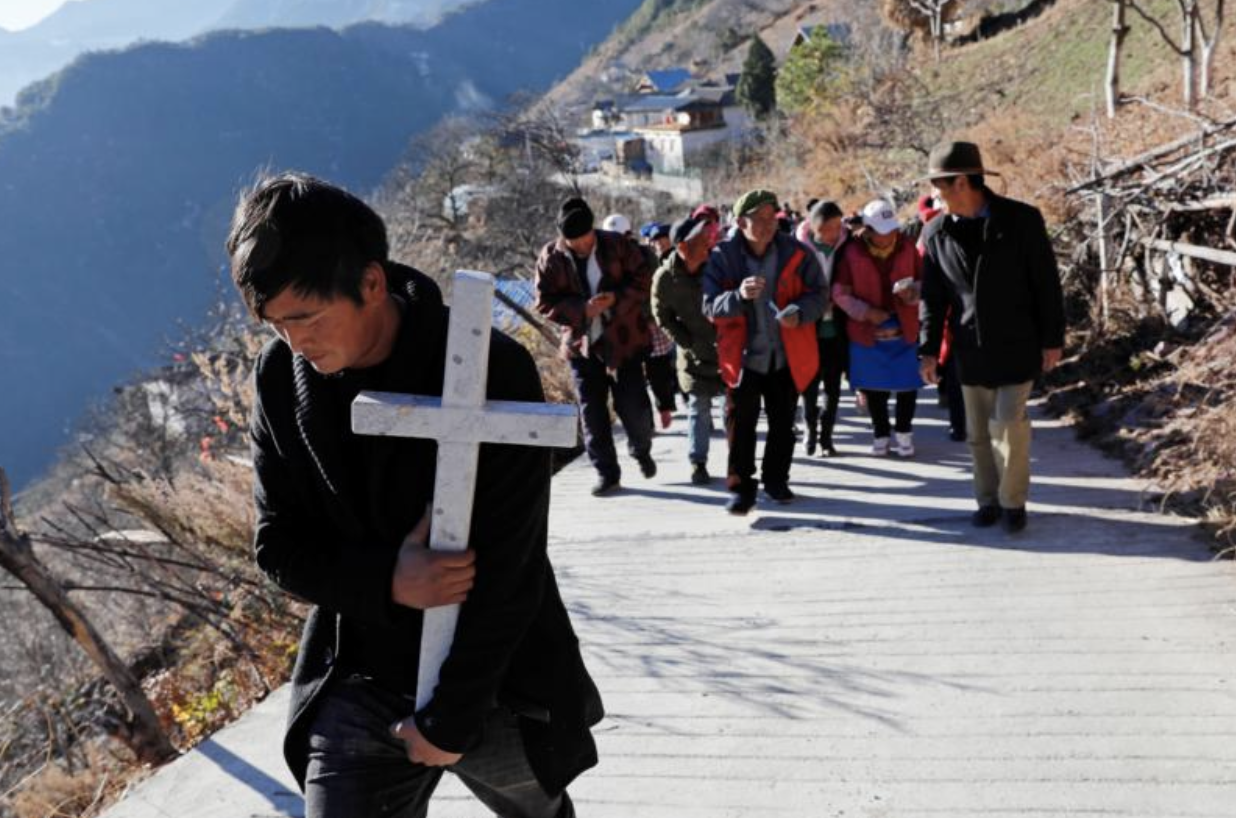LAMA AL-TAHER WRITES– The central government in China, led by President Xi Jinping, recently warned citizens not to fall for ‘spiritual anesthesia,’ or in other words, religion. Despite their condemnation, faith-based worship appears to be on the rise.
With a surge in religious observance, the country is projected to have the world’s largest Christian population by 2030. And so, the government has launched a campaign of persecution and repression.
Although the ruling body officially recognizes five religions–Catholicism, Islam, Protestantism, Taoism, and Buddhism–there are several other underground religions as well, which include quasi-Christian groups such as the Church of Almighty God, and Falun Gong, a spiritual movement that is a culmination of Daoism, Buddhism, and traditional qigong exercise. Despite its legal status, the government has kept a short leash by arresting church pastors, banning online Bible sales, and banning broadcasts of religious activities.
This crackdown stands in sharp contrast to provisions cited in the Chinese constitution, with Article 36 saying that natives “enjoy (the) freedom of religious belief,” the Council on Foreign Relations detailed. The charter forbids discrimination on the grounds of religion and prohibits public enterprises and private individuals from pushing or alienating any particular faith. In February 2018, the State Council (the government’s administrative authority) passed regulations that permitted state-registered religious groups to own property, spread literature, maintain a clergy, and even garner donations. Side by side, the government also passed legislation that tightened restrictions on religion-based education and times and locations of faith-based observances.
Consider a recent report by Reuters, detailing the mistreatment of Dr. Jin Mingri, a pastor in the Zion Church, one of the largest churches in the Chinese capital. He has received strict instruction from the ruling party to mount facial recognition cameras on the church’s pulpit. When he refused, the house of worship was officially shut down, and its followers denied government benefits.
Earlier last year, the Beijing Chaoyang district civil affairs bureau cited that the church was breaking the law by organizing events without registering them formally. Some of the rules they forbade included mass gatherings, which are “legally banned,” leading to a confiscation of “illegal promotional material,” the same report added.
“I fear that there is no way for us to resolve this issue with the authorities,” Pastor Mingri told Reuters.
China has a history of atheism tracing back to the ninth century, when, under the rule of Emperor Wuzong (Tang Dynasty) the suppression of religion,—destroying temples, murdering clergy— was rampant. Fast forward to the early 20th century, when Communist party leader Mao Zedong banned all religious practices in China–which lasted until his death in 1976.
Despite lawmakers’ amendments to the constitution designed to protect freedom of religion, the government appears to be resistant to change.


